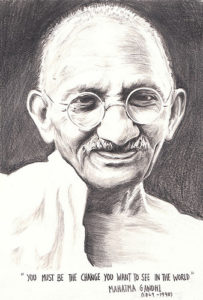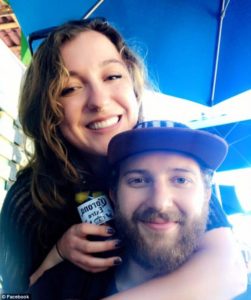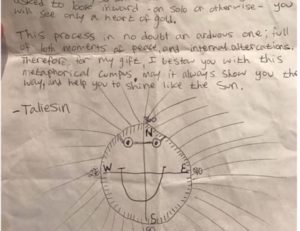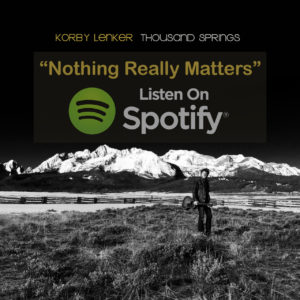Taliesin.
June 7, 2017It is Gandhi who eases my heart and reminds me (again) how we give love to the one who gives face to the greatest pain.
‘There is a story of Gandhi that reveals how profound and daring his sense of compassion was. It occurred during one of his famous hunger strikes. A man whose daughter was killed came in anguish, saying to Gandhi that he would stop fighting if the great soul would eat. But Gandhi knew the healing was deeper than just stopping the violence, and so he told the man he would eat only when the tormented father embraced the man who killed his daughter.
It is said that the man collapsed in tears, but did as Gandhi asked, and the larger conflict ended. This is an enormous thing to ask of someone in grief, of someone who has been violated. But beyond the vast courage needed to incorporate this kind of love into our daily lives, Gandhi’s request reveals the irrefutable wisdom that only when the broken are healed, no mater what they have done, will we as people heal.’
[Mark Nepo, The book of Awakening, p. 179]
Taliesin Namkai-Meche, 23, was my son’s friend at Reed College in Portland. Taliesin was a year older than my son, William; my son graduated just a few weeks ago. Taliesin’s girlfriend, Ellie, is a friend of our family’s. When my son first learned one of the victim’s in the Portland massacre was his friend he cried, “No. Not Taliesin.” He is crushed. And Ellie, broken.
When the the hate-filled and mis-guided man was arraigned in a Portland court and his outbursts recorded, I felt my heart harden. ‘Hate’ is a word that was not allowed to be spoken in our little family. My son and daughter were encouraged to find a different word, or express their thoughts in another way. The hate I was feeling surprised and confused me. When I first looked upon the face that could cause so much pain and alter so many lives for false ideology, I tried at that moment to understand what could have happened in his life to cause him to violently take the lives of two beautiful beings, gravely injure a third, and force two young girls to process this horrific event over the course of their lives. My son could not look upon his face.
Then, the hatred I felt for him, and for all in our country who have been given a fast lane to expose their bigoted and racist vitriol, began to manifest. This event, for me, is the final culmination of a depleting and damaging presidential campaign, and the subsequent reality of living in a country so divided and angry that I do not see a path forward under any peripheral leadership.
Guided by Universal grace I was reminded of Gandhi’s story, and my heart began to release the awful hate.
Taliesen, Rick Best, and Micah Fletcher stood up to hate and violence. They were brave and altruistic in motive and heart. They are true patriots, and what I believe America to be, or has the potential to be. We, too, as a nation, are broken. To heal, we must help and embrace, show kindness and compassion, interpersonally, and in our communities, every day. Every. Single. Day.
Taliesin and Ellie spent their last hours together working in their garden and sharing dinner in Taliesin’s new home. He created a community space for Ellie and their friends. He wanted to marry and have children. Together they hoped to plant a ‘Bleeding Heart’ bush, the one with the tiny heart-shaped flowers.
The fall-out from this tragedy has altered my own personal trajectory. I will not permit these deaths to be senseless, only a constant reminder of, as favorite professor Dr. David Peat reminded me, Infinite Potential. The potential of one love, one mind, one body, one spirit.
Thank you, Taliesin. For being a tender friend to my son, for reminding me in your transition the tremendous infinite possibility of kindness, compassion, and love.
My son and I toasted you the evening before he left for his own life’s potential.Here’s to you, sweet Taliesin. We will always feel your light, your grace, your gift, and your love.
“I see more clearly than ever before that my Divine birthright is freedom, peace, joy, and eternal goodness. I perceive that this same birthright is bequeathed to all people. This power I use for my own and every other person’s good.”
[Science of Mind]
Peace.
Rescue our soul.
‘But if not for ourselves, at least for our children, we should unite to respond to these attacks on our lives, liberties and the environment. In his poem “Let America be America Again,” Langston Hughes says,’
Out of the rack and ruin of our gangster death,
The rape and rot of graft, and stealth, and lies,
We, the people, must redeem
The land, the mines, the plants, the rivers.
The mountains and the endless plain—
All, all the stretch of these great green states—
And make America again!
‘It is indeed possible that after this period of turmoil we may reach that beautiful stage when democracy and justice will come back to America. As Leonard Cohen says in his song “Democracy,”’
I’m sentimental, if you know what I mean
I love the country but I can’t stand the scene.
And I’m neither left or right
I’m just staying home tonight,
getting lost in that hopeless little screen.
But I’m stubborn as those garbage bags
that Time cannot decay,
I’m junk but I’m still holding up
this little wild bouquet:
Democracy is coming to the USA.
By:Cesar Chelala| MAY 31, 2017 Bill Moyers & Co
https://www.youtube.com/watch?v=wEBlaMOmKV4
For kids in foster care.
An Exceptional Pair of Parents Meets Ellen
On any given day, nearly 428,000 children are in the foster care system in the United States. Of the thousands of children who enter the system each year, most arrive carrying little more than the clothes on their backs. If they are afforded the opportunity to collect any personal belongings, many are then given a trash bag in which to place and carry their personal items. It is a time of great upheaval and instability, and their first foster home placement is unlikely to be their last. Many children in foster care will be moved from home to home multiple times, carrying their life’s treasures in a trash bag. At Comfort Cases we believe that every child deserves to feel a sense of dignity. Every child deserves to pack their belongings in a special bag that they can call their own. It is our mission as a charity to provide a proper bag, filled with comfort and essential items, to these brave children on their journey to find their forever home.
How to Help
At Comfort Cases, we believe in a compassionate community that cares for the most vulnerable among us, and foster children need support from all of us. From in-kind and monetary donations to volunteering in our Center to driving deliveries of comfort cases to our partner agencies, there are many ways to become involved. Please join us on our mission to bring comfort and dignity to foster children in need.
Silent friends.
For you time is never lost.
‘Perhaps because they have been our silent friends since the dawn of humanity and remain the oldest living things in the world, trees have been central to our ancient mythology and our sensemaking metaphors of science. So powerful is our bond that they can save our lives and we theirs.
That abiding bond is what Spanish multimedia storytelling of Kauri celebrates in the beautiful short film The Silent Friends.’
[Maria Popova]
Korby’s single.
Korby:
“If you have some leftover firecrackers from your childhood, light one off for me. Today is a day of celebration because the first single from my new record is now up on Spotify. I’m very proud to bring you “Nothing Really Matters”
I wrote this song with my friend Stoll Vaughan. The inspiration came while I was on the road – I had the night off in Tampa, Florida and was hanging out on the boardwalk. It was like how you think it would be. The sun was setting, seagulls flying around, crying, bickering. Young lovers holding hands, kids eating cotton candy, that kind of thing.
I had nowhere to go so I just walked along, checking out the scene. Toward the end of the boardwalk I came across this young girl playing fiddle tunes, by herself, just kind of lost in the music – fiddle case open, a few coins and small bills in there. She looked a little rough. Her long dark hair hung in front of her face and there were small tattoos on her fingers. I watched and listened and it was immediately clear that she was good. She had that shuffle. Its the thing that’s either in you or it’s not, and it was spilling out of her like wine at the end of a party.
I recognized the fiddle tunes – Red Haired Boy, Whiskey Before Breakfast, Billy in the Lowground – it was obvious she’d grown up in the old time music. She had that way of playing that makes you smile.
I listened for a few minutes before I noticed I wasn’t the only one. Behind the girl, facing out toward the ocean and the seagulls, was an old man. He was leaning against the railing with his rounded shoulders and his bone white hair poking out from beneath a faded fishing cap.
He was pretending to watch the sunset, but I could tell he was really just listening to the tattooed fiddler. Something about the way he stood. Completely still, like someone paying close attention. Every now and then he would cast a glance her way, and turn right back toward the water. I looked closely and there was the tiniest tapping of his foot. A very private matter.
There were people everywhere, moving along down the boardwalk – mostly ignoring her, completely oblivious to him. I felt like I was being let in on a secret. I watched him listen, and I listened to her play. It was a perfect love story, beautiful and sad. He was there for the fiddler and her lonely music, and she had no idea.
I thought about that old man for a long time. I felt like he should have a song written for him. Nothing Really Matters is what came out.”
Off the hook with Milton Friedman.
Here it is 2017, and the Chairman of one of the largest pharma companies in the country is gleefully telling patients and the FDA to live with the costs of his profit seeking, at the same time he pays his CEO more than $95 million a year. Because he can, and, like many who lucked into top jobs at big companies, because his excuse is simple: He’s just doing his job.
If the idea is so wrong, if it leads to an erosion of the social contract and the deaths of innocent kids, why are we still discussing it?
Because it’s simple, because it diminishes responsibility, and because it comes with prizes and warm chocolate cookies for those in charge.
http://sethgodin.typepad.com/files/milton-friedman.pdf
[More from Seth Godin]
Nearly fifty years ago, Milton Friedman published a polemic, an article that altered the way many people think about corporations and their role in society. Countless writers have explained why it’s poorly reasoned, dangerous and wrong. (Including business school deans, Harvard Business Review and Fortune).
The simple message of the simple article was: “there is one and only one social responsibility of business – to use its resources and engage in activities designed to increase its profits…”
Friedman does add a parenthetical, “so long as it stays within the rules of the game, which is to say, engages in open and free competition without deception or fraud,” but it’s clear that his emphasis is on the first part.
Businesses, he argues, should show no corporate responsibility, do nothing to further the goals of an ethical society, do nothing to improve the lives of customers, employees or bystanders—unlessthese actions coincidentally maximize profits.
An interesting question that most people haven’t focused on: why did this dangerous idea catch on and stick around so long?
Because it’s simple, because it diminishes responsibility, and because it comes with prizes and warm chocolate cookies for those in charge.
The simplicity of the argument matches up with its mendacity. There’s no need to worry about nuance, no need to lose sleep over choices, no endless laundry list of social ills to worry about. Just make more profit.
Do this, get that.
A simple compass, a north star, a direction to go that absolves the employee/boss of responsibility for anything complicated or nuanced.
People love mechanical simplicity, especially when it benefits them.
The official rules of baseball are more than 250 pages long. Why? Because working the system, cutting corners and winning at all costs long ago replaced playing by the spirit of the game. Since the league can’t count on people to act like people acting on behalf of the community, they have to create ever more rules to keep the system in check.
The problem is far worse in a supposed free market. When humans stop acting like humans and instead indicate that they have no choice but to seek every short-term benefit and cut every possible corner, we can no longer trust each other to act responsibly.
Off the hook feels like a simple way out. “I’m just doing my job, and not thinking hard about the side effects (or to be more accurate, the effects) of my actions. Not only that, but one of the things that’s part of my job is lobbying to have fewer rules. Because working the refs is good business. And because everyone is doing it, I have no choice but to do it too.”
Of course, it’s difficult for us to solely blame poor Milton. Lots of us have bad ideas, I’ve certainly had plenty. No, we need to blame ourselves for letting selfish corporate officers get away with this reasoning. When we go to work, or partner with, or buy stock in a company that signs up for Milton reasoning, we’re rewarding people who have long ago stopped acting like people.
Profits are fine, they enable the investment we need to produce value. But almost nothing benefits from being the only thing we seek, and the pursuit of profit at the expense of our humanity is too high a price to pay.
Here’s a different version: A business is a construct, an association of human beings combining capital and labor to make something. That business has precisely the same social responsibilities as the people that it consists of. The responsibility to play fairly, to see the long-term impacts of its actions and to create value for all those it engages with.
Full Friedman article:
http://www.colorado.edu/studentgroups/libertarians/issues/friedman-soc-resp-business.html












